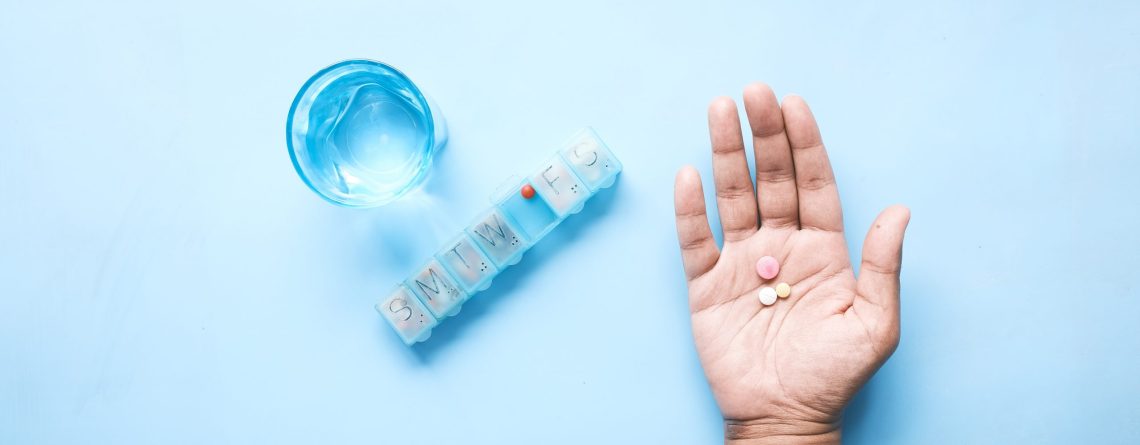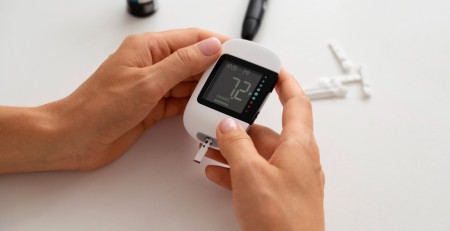Aricept vs. Adlarity for Alzheimer’s-Related Dementia
Key takeaways:
Donepezil (Aricept, Adlarity) is a first-line treatment for dementia caused by Alzheimer’s disease. It can help those who have mild, moderate, or severe disease.
Aricept is a brand of donepezil that is taken orally. It comes in two forms: a traditional tablet and an orally disintegrating tablet (ODT). Donepezil is available as a transdermal patch called Adlarity.
Aricept has been on the market for nearly three decades. Adlarity is a novel alternative that might be better suitable for some people or their caregivers.
Alzheimer’s disease has no known cure. Medications, on the other hand, are frequently used to assist manage the symptoms. Aricept is one of the most widely prescribed medications (donepezil).
Aricept is an oral medicine that is used to treat Alzheimer’s disease and dementia at all stages. It was approved in 1996 and is available as a conventional tablet as well as an orally disintegrating tablet (ODT). The FDA authorized Adlarity, a once-weekly patch variant of donepezil, more than 25 years later. People with Alzheimer’s disease or dementia now have another alternative besides taking a daily tablet.
What are the differences between donepezil tablets and patches? Is it worthwhile to make the switch? Continue reading to discover the fundamental distinctions between Aricept and Adlarity. We’ll go over some things to think about while talking with your doctor about your alternatives.
What exactly is Aricept?
Aricept is a first-line treatment for dementia caused by Alzheimer’s disease. It can be used by persons who have mild, moderate, or severe disease.
Aricept is available as a conventional tablet and an oral drug delivery system (ODT). It comes in three different dosages: 5 mg, 10 mg, and 23 mg (tablet only). There are both brand-name and generic versions of the pill available. Only a generic version of the ODT is provided.
What exactly is Adlarity?
The patch formulation of donepezil, Adlarity (donepezil transdermal system), is used to treat Alzheimer’s-related dementia. It’s approved for usage in persons with mild, moderate, and severe condition, just like donepezil pills.
Adlarity is a transdermal patch that is applied once a week. It comes in dosages of 5 mg and 10 mg each day. It’s only accessible as a name-brand item.
How do Aricept and Adlarity help people with dementia caused by Alzheimer’s?
The active ingredient in Aricept and Adlarity is donepezil. Donepezil is an inhibitor of acetylcholinesterase. It acts by inhibiting an enzyme (protein) in the brain that breaks down acetylcholine.
Acetylcholine is a neurotransmitter that aids in the communication of neurons in the brain. Memory, attention, and learning are all functions that it plays. Alzheimer’s disease patients have lower levels of acetylcholine in their brains. Donepezil acts by increasing the availability of acetylcholine.
Donepezil does not address the fundamental cause of Alzheimer’s disease. In other words, it does not halt the progression of the disease. However, it can aid in the management of some cognitive and behavioral problems.
What are the dosing and administration methods for Aricept and Adlarity?
The instructions for taking Aricept and Adlarity are different, despite the fact that their dose is similar.
Aricept is an oral medicine that is used once a day before bed. The tablets are completely swallowed. And the ODTs are dissolved on the tongue before being washed down with water. The pills and ODTs are kept at a constant temperature.
The typical beginning dose for mild, moderate, and severe Alzheimer’s disease is 5 mg at bedtime. The dose can be increased to 10 mg once daily after at least 4 to 6 weeks of therapy.
For mild to moderate condition, the maximum dose is 10 mg once daily. The dose can be increased to a maximum of 23 mg once daily for moderate to severe illness. However, this is only true after three months of consuming the 10 mg dose.
Aricept is well-absorbed in the gut following oral administration. It takes about 15 days for your body to reach a stable level of medicine.
Adlarity patches are designed to release 5 mg or 10 mg each day for 7 days. One 5 mg/day patch is applied once a week as a beginning dose. After 4 to 6 weeks, you may be made the shift to the 10 mg/day patch, much like the tablets. For patients with moderate-to-severe illness, however, there is currently no 23 mg/day patch alternative.
It’s critical to properly save and use Adlarity patches. Keep them in the fridge until you need to use one in less than 24 hours. Because a patch must be applied within 24 hours of being removed from the fridge, this is the case. Allow a cold patch to get to room temperature before applying it.
You’ll wear the patch for seven days, even when bathing or showering. The patch should be applied on your back. It can also be used on the upper buttocks or upper outer thigh. Remove the old patch and apply the new one on a certain day of the week. With each new patch, change the application sites.
In comparison to pills, Adlarity patches may take a bit longer to start working. It takes roughly 22 days for your body to attain a stable level of medicine. However, if you have difficulties swallowing pills or remembering to take them every day, the patches may be worth it.
Making the switch from Aricept to Adlarity
Is it possible to move from tablets to patches if you’re already on them? The short answer is that it depends.
If your daily tablet dose is available as a patch, you can switch. If you’re taking 5 mg or 10 mg every day, patches can be a good alternative.
You can transition to the 5 mg/day patch if you’re currently taking 5 mg by mouth every day. Similarly, if you’ve been taking 10 mg daily by mouth, you can transition to the 10 mg/day patch. You can move to the 10 mg/day patch after taking the 5 mg dose for at least 4 to 6 weeks.
How successful are Aricept and Adlarity in treating dementia caused by Alzheimer’s disease?
Aricept is a first-line treatment for dementia caused by Alzheimer’s disease. It has been demonstrated to be beneficial to patients suffering from mild, moderate, or severe disease. However, more research into the advantages of long-term use is required.
Aricept and Adlarity have been shown to be bioequivalent. As a result, you can expect a similar clinical benefit from both. However, as previously stated, Adlarity can take some time to attain constant levels in your body.
What are the side effects of Aricept and Adlarity that have been documented?
Because Aricept and Adlarity both contain the same active ingredient, they have a lot of the same adverse effects. Aricept, on the other hand, because it is taken by mouth, may produce greater stomach-related side effects. However, these tend to fade away with time. The following are some of the most prevalent side effects of both drugs.
| Side effect | Aricept |
Adlarity |
Nausea | 11% | Undefined |
Diarrhea | 10% | 4% |
Headache | 10% | 15% |
Insomnia | 9% | 7% |
Pain | 9% (various locations) | 6% (abdominal pain) |
Dizziness | 8% | 4% |
Application site itching/irritation | Not applicable | 6% to 9% |
Muscle spasms/cramps | 6% | 9% |
Constipation | Not reported | 6% |
Abnormal dreams | 3% | 4% |
What is Aricept and Adlarity’s significant adverse effects?
Aricept and Adlarity can have major side effects, albeit they are uncommon. If you see or begin to experience any of the following, contact your healthcare professional straight away:
- Black/tarry stool and/or blood in your stool are signs of a GI bleed.
- Heart rate is really sluggish.
- When you pee, you may have pain or have difficulty peeing.
- Seizures Symptoms of chronic obstructive pulmonary disease (COPD) or asthma that are getting worse
While wearing the patch, avoid extended exposure to heat (such as saunas or direct sunlight). This is because it may cause your body to absorb an excessive number of drugs. Severe nausea, vomiting, and sweating are all signs of an overdose. If you fear you’re having an overdose, seek medical help straight once.
What are the interactions between Aricept and Adlarity?
Anticholinergic drugs such as Aricept and Adlarity may be less effective as a result of Aricept and Adlarity. These are drugs that are used to treat Parkinson’s disease, bladder problems, and irritable bowel syndrome. Dicyclomine, benztropine, and hyoscyamine are other examples.
Both drugs have the potential to interact with anesthesia treatments. If you’re having surgery, be sure your healthcare practitioner is aware of all medications you’re taking.
To check for potential interactions, make sure your healthcare provider and pharmacist have your current prescription list.
In the end,
Donepezil is now available as a tablet, ODT, and transdermal patch. When talking with your doctor about your options, think about the benefits and drawbacks of each.
Aricept pills and ODTs are available in generic form at a reduced cost and can be stored at room temperature. You must, however, remember to take them every day. They can also have some unpleasant side effects, especially when you’re just starting out.
If swallowing tablets is a problem for you, the ODT or transdermal patch may be a helpful solution. If taking medication on a daily basis is a burden, the patch may be a better solution. However, you’ll want to be sure you can follow the storage and use instructions.
Book an appointment for Free Video or Phone Consultation with our Pharmacist
References:
Birks, J. S., et al. (2018). Donepezil for dementia due to Alzheimer’s disease. Cochrane Database of Systematic Reviews.
Corium, Inc. (2022). Adlarity [package insert].
Corium, Inc. (2022). Corium receives FDA approval of ADLARITY® (donepezil transdermal system) for treatment of patients with Alzheimer’s disease.
Ferreira-Vieira, T. H., et al. (2016). Alzheimer’s disease: Targeting the cholinergic system. Current Neuropharmacology.
Kumar, A., et al. (2021). Donepezil. Stat Pearls.
National Institute on Aging. (2021). How Is Alzheimer’s disease treated?
PD-Rx Pharmaceuticals, Inc. (2021). Aricept [package insert].
Winslow, B. T., et al. (2011). Treatment of Alzheimer disease. American Family Physician.
Written by Alyssa Billingsley, PharmD | Reviewed by Joshua Murdock, PharmD










